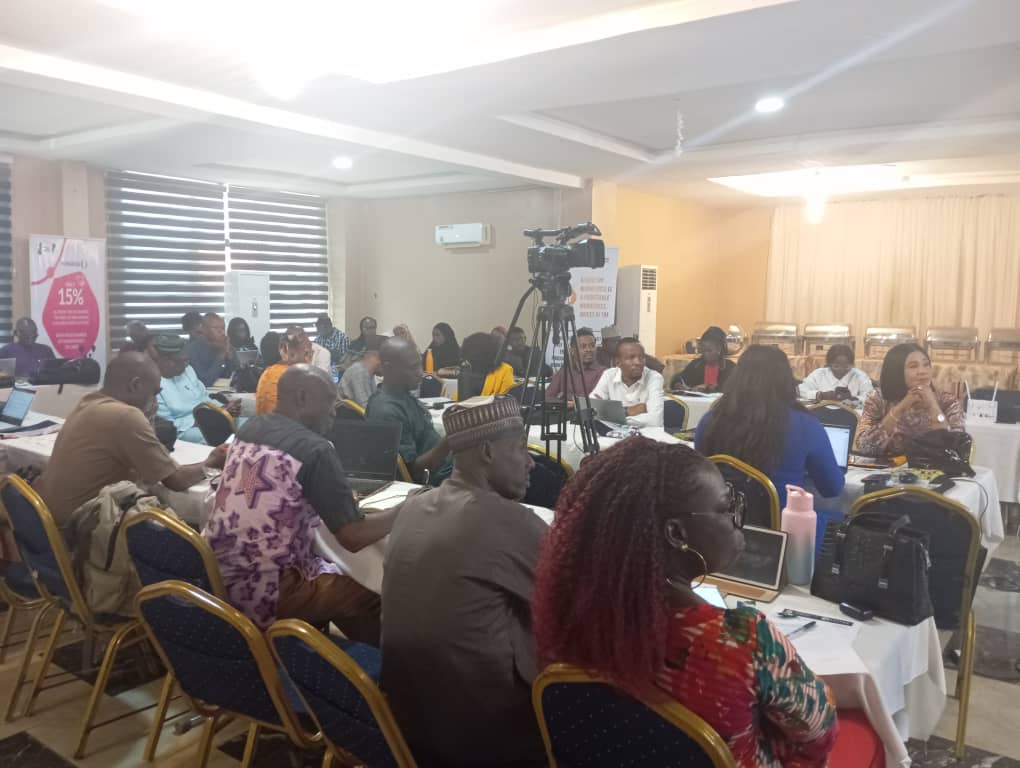……Says Nigeria Must Fund Its Own Health
ABUJA: In a bold step towards self-sufficiency, civil society organizations across Nigeria have come together to harmonize their strategies for domestic resource mobilization to fight HIV/AIDS, Tuberculosis, and Malaria a united front aimed at reducing the country’s dependence on international donor funding.
Speaking at the opening of a three-day harmonization workshop in Abuja, Dr. Queen Ogbuji-Ladipo, Board Chairman of Stop TB Partnership Nigeria, emphasized the urgent need for collaboration across disease-focused NGOs.
“This gathering is about uniting civil society to harmonize our strategic plans for domestic resource mobilization,” Dr. Ogbuji-Ladipo said. “Malaria, TB, HIV/AIDS programmes have worked in silos for too long. Now that foreign funding is shrinking, we must forge a common framework to mobilize local support and define our priorities.”
She added that civil society holds a strategic position in advocacy, being the voice for the voiceless and a vital bridge to both government and private sector resources.
Also speaking, Mr. Ibrahim Tajudeen, Executive Secretary of the Global Fund Country Coordinating Mechanism (CCM), stressed that local funding has become a non-negotiable requirement for global support.
“One of the Global Fund’s requirements is that countries provide at least 15% co-financing for HIV, TB, and malaria,” Tajudeen said. “In Nigeria, achieving that figure has been rough. But where we succeeded, civil society especially ACOMIN Played a key role.”
He noted that the time had come to move from fragmented efforts to a unified, scalable strategy that spans all 774 local government areas.
“Rather than piecemeal efforts, civil society must harmonize strategies to make a bigger impact,” he stated. “With dwindling global funds, our country must stop relying entirely on grants. The current administration and National Assembly must match appropriations with actual releases, and civil society must ensure accountability.”
Echoing these sentiments, Mr. Ayo Ipinmoye, National Coordinator of ACOMIN and First Vice Chair of CCM Nigeria, stressed that the era of waiting on foreign nations to fund Nigeria’s health priorities must end.
“Health is too critical to outsource,” Ipinmoye declared. “We cannot continue assigning responsibility for our health to others. It’s time we paid for the health of our people, and that includes holding our government and ourselves accountable.”
He highlighted donor fatigue as a key reason behind reduced global health funding, pointing out that in some cases, resources such as malaria nets are misused at the community level.
“Nets meant to prevent malaria are used for fishing or sewing clothes,” he lamented. “Health outcomes won’t improve until communities, private sector, and government each take ownership. This workshop is the first step in that direction.”
Mr. Mayowa Joel, the Executive Secretary, Stop TB Partnership Nigeria used vivid metaphors to stress the importance of unity.
“When a single snake shows up, you may ignore it. But when multiple snakes appear together pythons, dragons you run. That’s what we must become: a unified force with a single voice,” he said.
Joel called on all civil society groups to stop competing for the same funds in isolation and instead work together to present a consolidated strategy that the government and private sector cannot ignore.
“Today, HIV groups go to government for funding, tomorrow malaria groups follow, and the day after TB groups come. Let’s present one clear, strong case to donors and the government, showing that we are aligned, capable, and committed.”
The workshop, coordinated by Stop TB Partnership Nigeria, is expected to produce a single, harmonized framework to guide civil society advocacy and mobilization efforts across all three diseases.
The participants expressed optimism that with improved collaboration, increased domestic funding, and community engagement, Nigeria can move closer to achieving universal health coverage and reducing disease burdens that have long relied on external support.
